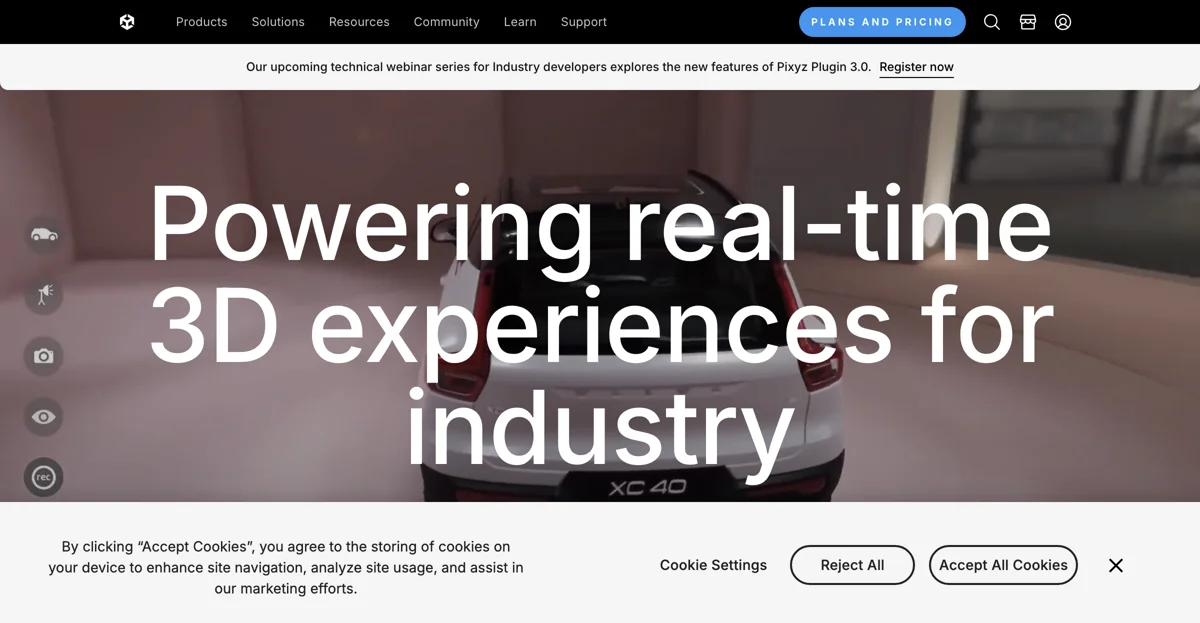Unity is a powerful real-time development platform that offers end-to-end tools and services for creating, launching, and growing amazing games. It enables developers to create and power richer worlds across 20+ platforms and billions of devices. With Unity, you can bring your vision to life with free access to the widely used game engine. The platform also provides tools for professionals to unlock their team's potential and manage complex real-time 3D projects. Unity offers a complete set of powerful tools, services, and expertise to help grow your app into a successful business. It also has a dynamic community with resources such as step-by-step help, a knowledge base, and an Issue Tracker. Additionally, Unity provides online learning paths, certifications, and more for those looking to enhance their skills. Whether you're a hobbyist or a pro, Unity's worldwide network of creators connects to learn, share, and inspire.

Unity
Unity offers comprehensive tools for game creation, launch, and growth. Join the community and unlock your potential.

Top Alternatives to Unity
Corona
Corona is a free, powerful cross-platform 2D game engine
G3D.AI {Jedi}
G3D.AI {Jedi} is an AI-powered game dev tool that boosts creativity
Bitpart AI
Bitpart AI is an AI-powered tool for game developers
v3RPG
v3RPG is an AI-powered RPG with unique features and rewards
Ludo.ai
Ludo.ai is an AI-powered game design tool that boosts ROI
RPG Maker
RPG Maker is an AI-powered game creation tool that empowers users to build their dream games easily.
Stride Game Engine
Stride is an open-source C# game engine for 2D and 3D games
Educandy
Educandy is an AI-powered tool that creates interactive learning games
Unity
Unity is an AI-powered game development platform that empowers creators
Torque3D
Torque3D is an AI-powered game development tool with diverse applications
GameGuide.ai
GameGuide.ai is an AI-powered game guide with real-time tips and answers.
urho3d
Urho3D is a cross-platform game engine with diverse features
MonoGame
MonoGame is an AI-powered game development framework for multiple platforms
GPT Games
GPT Games is an AI-powered platform that enables users to play and create games using ChatGPT.
Rosebud AI
Rosebud AI transforms text descriptions into 2D and 3D games, offering a suite of creative tools for game development.
Worlds Beyond
Worlds Beyond is a Social Creator Platform leveraging blockchain and AI to compete with major gaming platforms like Roblox and Minecraft.
Layer AI
Layer AI is a professional art tool that empowers game artists to enhance productivity and creativity with generative AI.
Scrabblecam
Scrabblecam is an AI-powered Scrabble solver that helps players find the best moves by analyzing board pictures.
Prompt Monsters
Prompt Monsters is an AI-powered blockchain game that allows users to create, battle, and evolve unique AI-generated monster NFTs.
Tavern of Azoth
Tavern of Azoth offers AI-driven RPG experiences, enabling players to explore, interact, and shape narratives in real-time.
PlayThis
PlayThis is an AI-powered gaming assistant that helps users optimize their game backlog for maximum enjoyment.